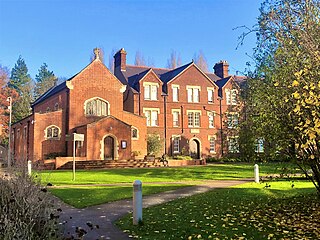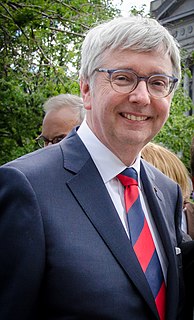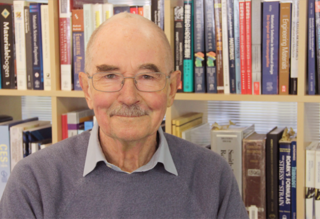Related Research Articles

Trinity College is a constituent college of the University of Cambridge. The college was founded in 1546 by King Henry VIII. Trinity is one of the oldest and largest colleges in Cambridge, with the largest financial endowment of any college at either Cambridge or Oxford. Trinity has some of the most distinctive architecture within Cambridge, with its Great Court reputed to be the largest enclosed courtyard in Europe. Academically, Trinity performs exceptionally as measured by the Tompkins Table, coming in top from 2011 to 2017.

The University of Cambridge is composed of 31 colleges in addition to the academic departments and administration of the central University. Until the mid-19th century, both Cambridge and Oxford comprised a group of colleges with a small central university administration, rather than universities in the common sense. Cambridge's colleges are communities of students, academics and staff – an environment in which generations and academic disciplines are able to mix, with both students and fellows experiencing "the breadth and excellence of a top University at an intimate level".

St Edmund's College is a constituent college of the University of Cambridge in England. Founded in 1896, it is the second-oldest of the four Cambridge colleges oriented to mature students, which accept only students reading for postgraduate degrees or for undergraduate degrees if aged 21 years or older.

Martin John Rees, Baron Rees of Ludlow, is a British cosmologist and astrophysicist. He is the fifteenth Astronomer Royal, appointed in 1995, and was Master of Trinity College, Cambridge, from 2004 to 2012 and President of the Royal Society between 2005 and 2010.

Sir Crispin Charles Cervantes Tickell was a British diplomat, environmentalist, and academic.

Sir David John Spiegelhalter is a British statistician and a Fellow of Churchill College, Cambridge. From 2007 to 2018 he was Winton Professor of the Public Understanding of Risk in the Statistical Laboratory at the University of Cambridge. Spiegelhalter is an ISI highly cited researcher.

Stephen John Toope is a Canadian legal scholar, academic administrator and a scholar specializing in human rights, public international law and international relations.

The Cambridge Biomedical Campus is the largest centre of medical research and health science in Europe. The site is located at the southern end of Hills Road in Cambridge, England. Over 20,000 people work at the site and is home to a number of organisations including: Cambridge University Hospitals NHS Foundation Trust, Royal Papworth Hospital NHS Foundation Trust, AstraZeneca's headquarters, Abcam, the Wellcome Trust, Cancer Research UK, the university's medical school, the UK government's Medical Research Council and has National Institute for Health Research Biomedical Research Centre status. It is an accredited UK academic health science centre.

Dame Henrietta Miriam Ottoline Leyser is a British plant biologist and Regius Professor of Botany at the University of Cambridge, Chief Executive Officer of UK Research and Innovation (UKRI) and the Sainsbury Laboratory, Cambridge.
Patricia "Pat" Simpson FRS is a distinguished British developmental biologist. Simpson was a professor of Comparative Biology at the University of Cambridge from 2003 to 2010, and was the University's Director of Research for the academic year 2010/2011. She is currently an Emeritus Professor of the Department of Zoology of the University of Cambridge, having previously been Professor of Comparative Embryology, and a Fellow of Newnham College. She was elected a Fellow of the Royal Society in 2000.

Michael Farries Ashby is a British metallurgical engineer. He served as Royal Society Research Professor, and a Principal Investigator (PI) at the Engineering Design Centre at the University of Cambridge. He is known for his contributions in Materials Science in the field of material selection.
Sir Mark Brian Pepys is a South African-born British academic of medicine. He was until 2011 Professor of Medicine at University College London and Head of Medicine at the Hampstead Campus and the Royal Free Hospital.
Peter Henry St George-Hyslop, OC, FRS, FRSC, FRCPC, is a British and Canadian medical scientist, neurologist and molecular geneticist who is known for his research into neurodegenerative diseases. St George-Hyslop is one of the most cited authors in the field of Alzheimer's disease research. He has identified a number of key genes that are responsible for nerve cell degeneration and early-onset forms of Alzheimer's disease. These include the discovery of the presenilins, Nicastrin, and SORL1 genes. Presenilin mutations are the most common cause of familiar Alzheimer's disease. St George-Hyslop also co-led the discovery of the gene for the amyloid precursor protein.
John Andrew Todd FMedSci FRS is Professor of Precision Medicine at the University of Oxford, director of the Wellcome Center for Human Genetics and the JDRF/Wellcome Trust Diabetes and Inflammation Laboratory, in addition to Jeffrey Cheah Fellow in Medicine at Brasenose College. He works in collaboration with David Clayton and Linda Wicker to examine the molecular basis of type 1 diabetes.
William Anthony Harris FRS FMedSci is a Canadian-born neuroscientist, Professor of Anatomy at Cambridge University, and fellow of Clare College, Cambridge. He was head of the Department of Physiology, Development and Neuroscience since its formation in 2006 until his retirement in 2018. In 2022, Harris published his first popular science book titled "Zero to Birth: How the Human Brain is Built", published through Princeton University Press.
Derek John Fray is a British material scientist, and professor at the University of Cambridge.

Sir Harshad"Harry"Kumar Dharamshi Hansraj Bhadeshia is an Indian-British metallurgist and Emeritus Tata Steel Professor of Metallurgy at the University of Cambridge. In 2022 he joined Queen Mary University of London as Professor of Metallurgy.

Dame Clare Philomena Grey is Geoffrey Moorhouse Gibson Professor in the Department of Chemistry at the University of Cambridge and a Fellow of Pembroke College, Cambridge. Grey uses nuclear magnetic resonance spectroscopy to study and optimize batteries.
Sharon Jayne Peacock is a British microbiologist who is Professor of Public Health and Microbiology in the Department of Medicine at the University of Cambridge. She is known for her work on the use of microbial whole genome sequencing in diagnostic and public health microbiology, particularly on the bacterium Burkholderia pseudomallei and on methicillin-resistant Staphylococcus aureus (MRSA).

Emily Fleur Shuckburgh is a climate scientist, mathematician and science communicator. She is Director of Cambridge Zero, the University of Cambridge's climate change initiative, and is a fellow of Darwin College, Cambridge. Her research interests include the dynamics of the atmosphere, oceans and climate and environmental data science. She is a theoretician, numerical modeller and observational scientist.
References
- ↑ "Archived copy". Archived from the original on 9 August 2011. Retrieved 26 November 2011.
{{cite web}}: CS1 maint: archived copy as title (link) - ↑ avd26@cam.ac.uk (10 August 2011). "Cambridge in Africa — Cambridge Infectious Diseases". www.infectiousdisease.cam.ac.uk. Retrieved 4 October 2019.
- ↑ "Anthony Butterworth - Biography". Royal Societ. Retrieved 1 October 2019.
- ↑ "Pump Aid and the Elephant Pump in Zimbabwe". Archived from the original on 11 May 2003. Retrieved 13 May 2022.